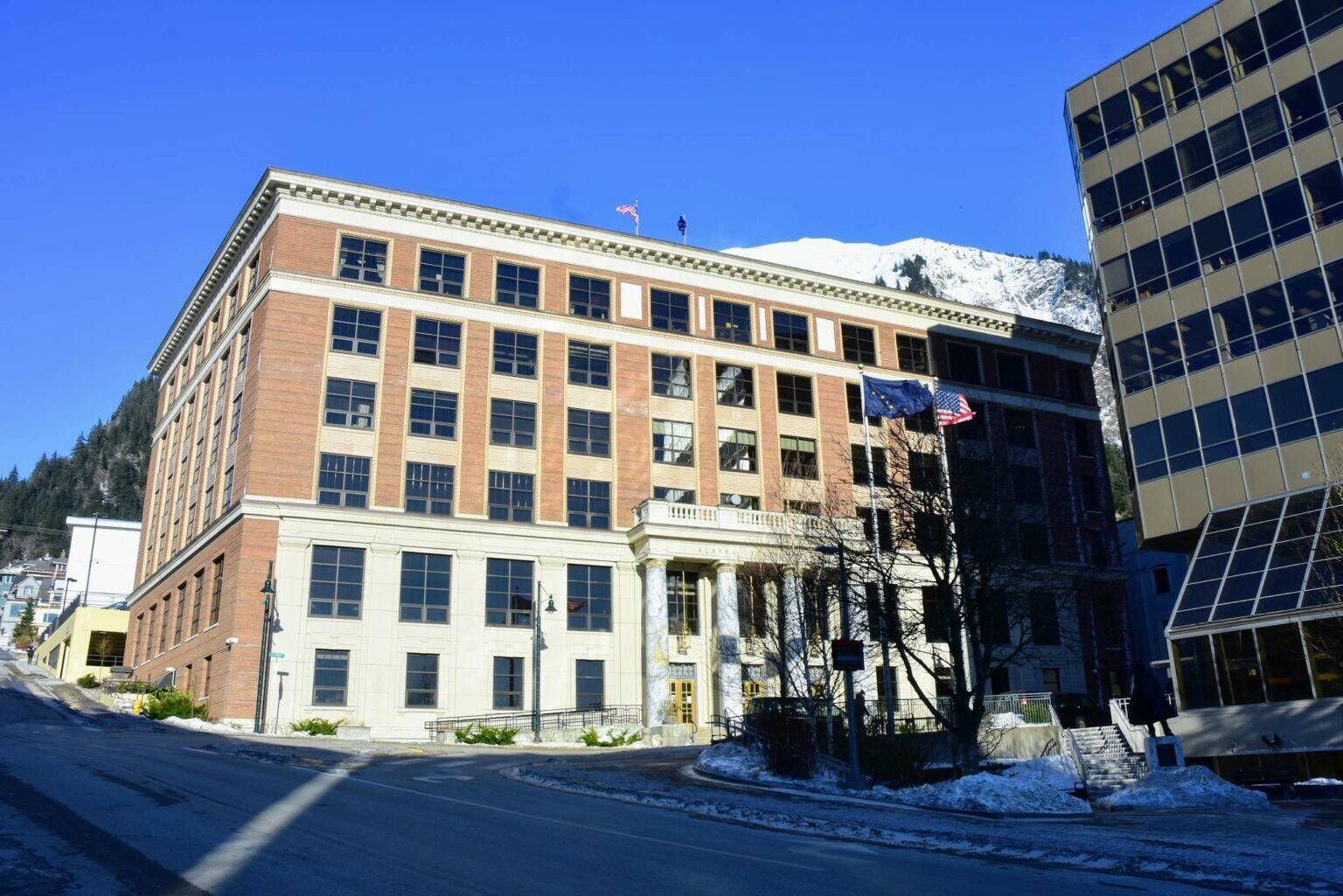The Alaska Public Office Commission Thursday removed limits on campaign donations to state-level candidates, allowing unlimited donations to campaigns.
A court ruling struck down a 2006 voter initiative that put a $500 limit on campaign donations. That case had been in the courts for six years before a Ninth Circuit Court of Appeals ruling in August 2021 found the $500 limit to be too low and in violation of First Amendment free speech protections.
The Dunleavy administration chose not to appeal the case. Attorney General Treg Taylor wrote in a September 2021 legal brief the state had already spent years on the case, and further litigation might produce a worse outcome for the state.
According to APOC, shortly after the decision in October 2021, Paula DeLaiarro sent APOC a letter regarding the decision and asking if she was able to donate an unlimited amount.
APOC staff recommended reverting back to contribution limits set in 2003 but indexed for inflation, amounting to $1,500 per individual. But that advisory note required a vote of four out of five members of the commission. In a Feb. 28, meeting only three members voted in favor.
“Application of the revival doctrine here would reestablish contribution limits passed by the Alaska Legislature almost nineteen years ago,” APOC stated in the decision. “Moreover, the doctrine of revival in this context has not been specifically adopted by Alaska Courts or the Legislature.”
[Hearing held for restrictive transgender sports bill]
The advisory note asks the Legislature to revisit contribution limits to provide clarity for Alaskans.
But until then, the door is open for people to make unlimited contributions to candidates amid an election year.
In an interview Friday, Senate President Peter Micciche, R-Soldotna, said he felt the $1,500 limit was somewhat arbitrary, but a preferable alternative to unlimited campaign donations. Micciche said he was concerned about the influence that could give to very wealthy individual donors.
“It certainly leaves me with the impression those with the greatest amount of resources will have the advantage,” Micciche said. “At some point, the wealthiest should not be advantaged that significantly.”
On social media, gubernatorial candidate Les Gara, a Democrat, blamed the Dunleavy administration for not appealing the decision.
“(Dunleavy) got his way. Unlimited $ in Alaska politics as of an hour ago. He orchestrated this. He purposely didn’t appeal the court ruling reversing our donation limits,” Gara said on Twitter. “When called out by the court for not appealing, he still refused to appeal. This is what he wanted all along.”
#Akgov got his way. Unlimited $ in Alaska politics as of an hour ago. He orchestrated this. He purposely didn’t appeal the court ruling reversing our donation limits. When called out by the court for not appealing, he still refused to appeal. This is what he wanted all along. https://t.co/VkKFCzrCL7 pic.twitter.com/W5223c7917
— Les Gara (@LesGara_InAK) March 4, 2022
In an email, Dunleavy spokesperson Jeff Turner said the governor absolutely supports a campaign limit but has not taken a position on what it should be.
“Only the Alaska Legislature has the constitutional authority to make laws and with two months remaining in the legislative session, there is enough time to pass a bill.”
There are six bills establishing contribution limits submitted to the Legislature, three in both bodies.
Rep. Andy Josephson, D-Anchorage, is the sponsor of one of those bills. His bill would establish yearly limits of $700 for House races, $1,000 for the Senate and $1,500 for statewide races such as the governor’s office.
There are also bills from Reps. Calvin Schrage, I-Anchorage, and Jonathan Kreiss-Tompkins, D-Sitka and Sens. Bill Wielechowski, D-Anchorage; Shelley Hughes, R-Palmer and Scott Kawasaki, D-Fairbanks.
The Alaska Public Interest Research Group released a statement Friday condemning the move and said the organization is considering, “possible avenues of action.”
“APOC has created unnecessary chaos while punting any responsibility to the Alaska State Legislature, said Veri di Suvero, the group’s executive director. “There is enough dark money in Alaska politics without zero regulations over contribution limits.”
This is an election year and any bills not passed this session will have to be resubmitted in the next Legislature. Many lawmakers have already filed to run for re-election, though some have held off on filing until the state’s redistricting process is finished.
“I think there’s a good chance we could get one through the House, you could cobble together 21 votes for some sort of limit,” Josephson said in an interview with the Empire. “Could it get through the Senate? I don’t know about that, I just don’t know about that.”
• Contact reporter Peter Segall at psegall@juneauempire.com. Follow him on Twitter at @SegallJnuEmpire.

